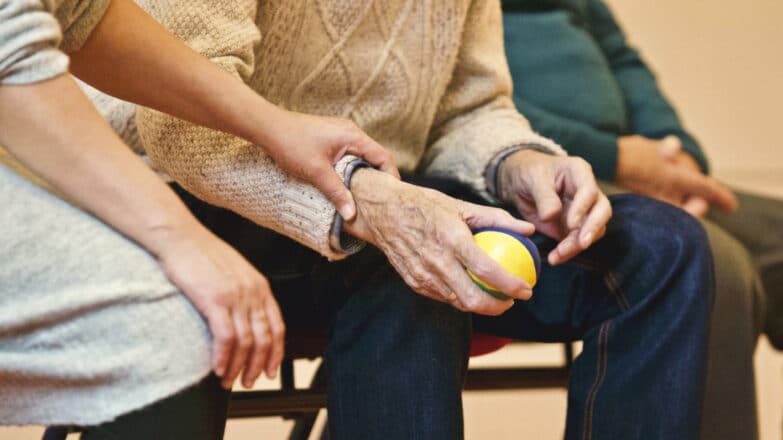Stepping into the world of a Home Health Aide means taking on a wide array of rewarding medical, healthcare, and quality of life services for those in need. As ageing populations choose the comfort of their own homes over usual care homes, the demand for home health aides is skyrocketing, with expected growth of nearly 40% from 2016 through 2026.
Taking care of the elderly, people with disabilities and chronic issues, as well as those recovering from surgeries, an Aide must possess the capacity to handle tasks from administering medications and taking vital signs, to arranging nutritious meals, folding laundry, and even enjoying leisure activities with patients.
As an Aide frequently becomes responsible for substantial parts of their patients’ healthcare, they’re often coordinating with doctors, nurses, and medical assistants to ensure comprehensive care is provided. From young high school graduates looking to start their career in healthcare, to individuals seeking a secure job, this role offers an incredible option with minimal educational investment and solid job security in the pipeline.

Understanding Home Health Aides
Who is a Home Health Aide?
A Home Health Aide (HHA) is a professional caregiver who provides medical care and assistance to individuals in their homes. These patients can range from the elderly, those with disabilities, or those suffering from chronic illnesses or recovering from surgery. As a home health aide, you could become a pivotal figure in your patient’s life, providing both necessary medical attention and a comforting presence in their home.
Scope of Home Health Aide’s Work
The work of an HHA is extensive and can vary heavily based on the needs of the patient. Some duties may focus on medical tasks, such as administering medications or taking vital signs, while others revolve around quality of life services, like light housekeeping, meal preparation, and companionship. With each patient having unique needs, every day can be different in the life of a home health aide.
Demand for Home Health Aides
Current and Projected Demand for Home Health Aides
As more elderly individuals choose to age in place, meaning they prefer to stay in their own homes rather than moving into care facilities, the demand for home health aides is on the rise. Similarly, those recovering from procedures or living with disabilities may also prefer home care. This demand is projected to grow at a rate of 40% through 2026, signaling a rapidly expanding field with ample opportunity.
Factors Driving the Demand
Multiple factors are driving the demand for home health aides. Primary amongst them is the increasing elderly population who prefer to stay in the comfort of their homes. Additionally, advancements in home healthcare technology make it possible for more care to be delivered at home. Also, home health care is seen as a more cost-effective alternative to hospital or residential facility stay which is adding to the increasing demand.
Typical Duties of a Home Health Aide
Medical and Healthcare Tasks
Medical tasks an HHA might be responsible for include administering prescribed medications, taking and recording vital signs, collecting samples for testing, and assisting with exercises. A home health aide may also engage in patient education regarding nutrition and serve as the hands-on healthcare provider, ensuring the patient is following their doctor’s orders.
Quality of Life Services
A home health aide’s duties extend beyond the medical to include tasks that profoundly affect the patient’s quality of life. They might assist the patient with errands or accompany them to doctor’s visits, provide companionship through reading, conversation, or other activities, and aid in daily tasks like bathing, dressing, grooming, meal preparation and light housekeeping.
Interactions with Other Healthcare Professionals
Engagements with Doctors and Nurses
Home health aides work in conjunction with other healthcare professionals to ensure cohesive care for the patient. They often communicate with doctors, nurses, and medical assistants regarding the patient’s condition, needs, and prescribed care. This forms an essential part of their duty in patient healthcare management.
Role in Patient Healthcare Management
Home health aides play a crucial role in patient healthcare management. As they are often the prime caregivers in contact with the patients, they have a critical position in overseeing the healthcare needs of their patients. They ensure that doctor’s directives are adhered to and communicate any changes or concerns to the healthcare team promptly.

Working Environment of a Home Health Aide
Common Location of Work
The majority of a home health aide’s work is done in the patient’s home, though they may also perform some administrative tasks at their agency. The working environment will vary greatly depending on the patient’s living conditions.
Variety in Living Conditions
As home health aides offer their services at the client’s homes, they need to adapt to a variety of living conditions that can range from pets in the house to old styles of heating and housekeeping challenges due to the client’s mobility issues. It is important for the home health aide to have an open mind to adapt to these varying conditions.
Understanding Patient Circumstances
A deep understanding of each patient’s unique circumstances, including their medical conditions, personal living situation, and emotional needs, is essential for a home health aide. This understanding can contribute significantly to how effectively they can address the patients’ needs and contribute to their quality of life.
Becoming a Home Health Aide
The Educational Journey
Training to become an HHA includes both theoretical knowledge and practical skills training. These usually cover a range of topics including basic nursing skills, anatomy and physiology, infection control, nutrition, and interpersonal skills.
Duration and Process of Training
Becoming a Home Health Aide usually takes less time compared to some other healthcare professions. Training programs including clinical practice often can be completed in as little as three weeks. After successful completion, certification can be achieved, paving the way towards a rewarding career in healthcare.

Ideal Skills for a Home Health Aide
Soft Skills Required
Soft skills such as empathy, patience, excellent communication, and respect for privacy are imperative for a home health aide. They often work with patients experiencing some form of vulnerability and thus, the ability to create comfort and trust is key.
Medical Skills and Knowledge
In addition to soft skills, HHAs need a set of medical skills and knowledge. These can include understanding of basic medical terminology and procedures, knowledge on medication administration, vital signs monitoring and patient safety procedures.
Adaptability and Problem Solving Skills
As patients’ conditions can change and emergencies can arise, adaptability and problem-solving skills are invaluable. HHAs must be able to react promptly and effectively to changing circumstances, ensuring patient care is always prioritized.
Role in Patient Exercise and Mobility
Assisting with Physical Movements
An important part of a home health aide’s duties is assistance in patient mobility. This could involve helping the patient move around the house, get in or out of bed, or transfer to and from wheelchairs, providing key support to their physical wellbeing.
Facilitating Rehabilitation Exercises
Home health aides often assist patients with prescribed rehabilitation exercises. These can include strength-building exercises, stretches, or other prescribed physical therapy routines.
Maintaining Patient Records
The Need for Accurate Records
Maintaining detailed and accurate patient records is an imperative responsibility of a home health aide. These records track the health progress of the patient and facilitate effective communication between different healthcare professionals involved in the patient’s care.
What Information to Include in Records
Information recorded can include details of administered medication, daily activities, changes in health condition, care plans, and other observations. These records not only help assess a patient’s progress over time but also guide future care plans.
Career Progression for Home Health Aides
From Home Health Aide to Other Healthcare Roles
Working as a home health aide can be a stepping stone to other roles in the healthcare sector. With the foundation of medical knowledge and patient care experience, HHAs can pursue further education to become nurses or other specialized healthcare professionals.
Long term Professional Growth Endeavors
Long term career growth for a home health aide can involve moving into supervisory roles, like supervising other aides or becoming a manager at a home health service. With further education, home health aides can branch into other medical fields, providing them with various avenues for professional growth in the healthcare industry.
